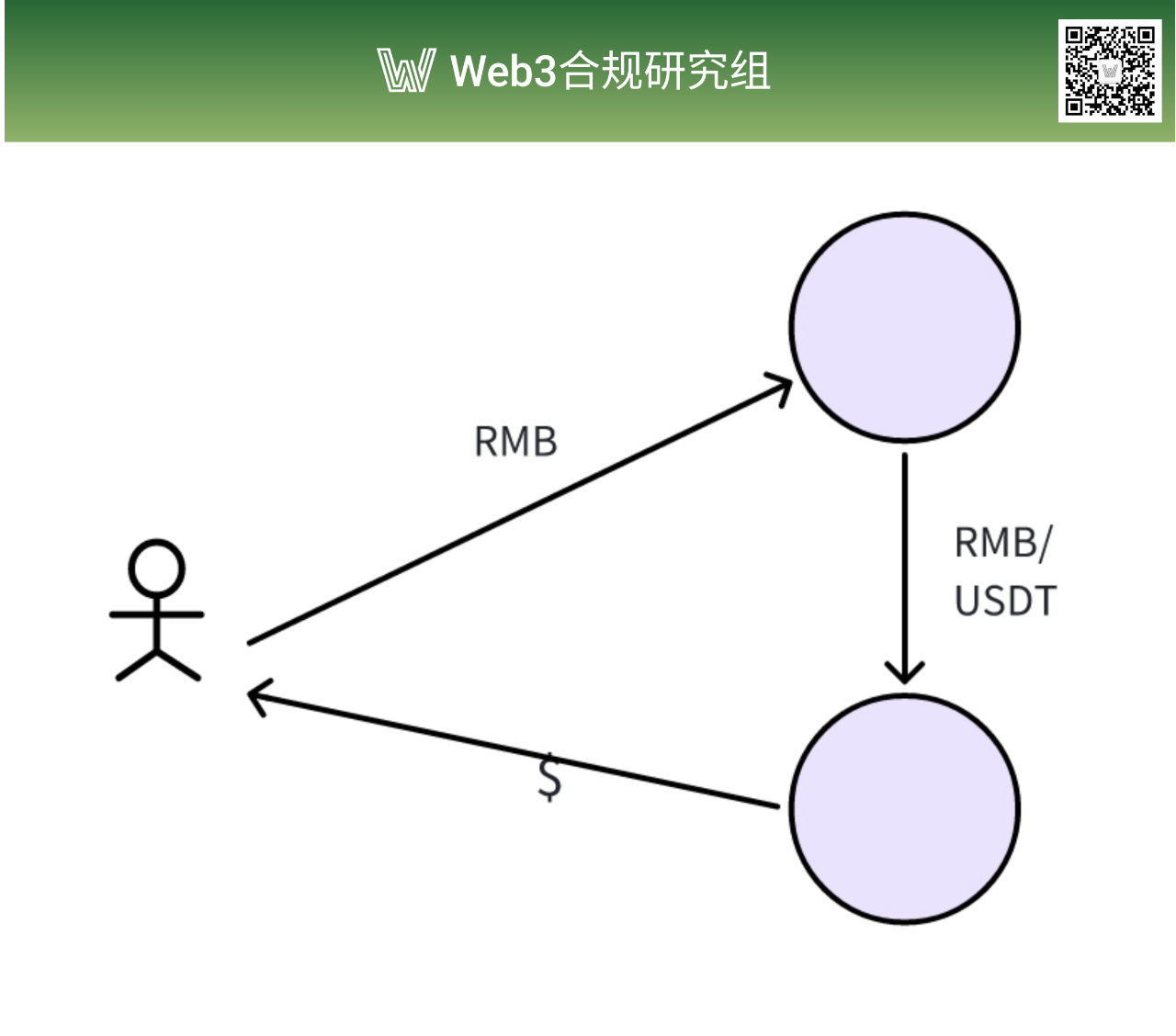Compliance first, no scapegoating.
Written by: Lawyer Pang Meimei

"In fact, many web3 practitioners that Lawyer Pang Meimei has encountered, those who genuinely want to conduct serious business in the web3 world, are diligently maintaining the reputation of virtual currencies. In reality, regardless of the form of virtual currency crime, the core of legal judgment always lies in the harm of the act itself, rather than the attributes of the technology or tools."
For a long time, the cryptocurrency industry has been a dark forest, needing to guard against on-chain security threats while also being wary of the legal swords of the real world. The same act of transferring and exchanging currency with USDT can lead to someone helping a friend and gaining "favors," while another person is convicted of "illegal operation."
I. Regulatory Signals Behind the Elevated Jurisdiction of a Virtual Currency Case in Sichuan Province
On July 29, 2025, the Supreme People's Court released typical cases of elevated jurisdiction for 2024, among which Case 200 involving Wan Mouyuan and others for illegal operation can be considered a significant elevation, guiding a wide area. This case was initially accepted by the People's Court of Muchuan County, Sichuan Province. The court believed that the case involved the identification of the nature of foreign exchange transactions mediated by virtual currencies. Due to differing regional understandings of the legality of virtual currencies and discrepancies in the identification of such behaviors in practice, the case was submitted for elevated jurisdiction to the Intermediate People's Court of Leshan City, Sichuan Province.
Lawyer Pang Meimei discovered through data searches that since 2023, over 30% of cases involving virtual currency foreign exchange crimes have adopted elevated or designated jurisdiction. This indicates that such cases have become a new type of financial crime that judicial authorities are closely monitoring, and the court has clarified the adjudication rules for such cases through this example. For cases that deliberately evade national foreign exchange regulations using virtual currencies, the people's court will peel back the layers, unveil the "veil" of virtual currency transactions, expose the essence of the case, and severely punish all illegal foreign exchange activities. Ultimately, the court determined that Wan Mouyuan and others traded foreign exchange through the "RMB—USDT—USD" method, sentencing the main offender to 13 years and 6 months in prison for illegal operation.
II. Legal Breakdown: How Did USDT Exchange Become Illegal Operation?
Many people might say, "I have also helped friends exchange currency, how did that become illegal operation?"
This needs to start from the operational model. The core operation of Wan Mouyuan's gang was: domestic clients transfer RMB to a designated account, and the gang exchanges an equivalent amount of USDT for USD abroad, transferring it to the client's overseas account, thus achieving a three-stage operational chain of "domestic RMB - overseas USDT - target currency," with USDT acting as a "currency converter" in the middle.
The Supreme People's Procuratorate specifically pointed out in its 2023 typical cases that using virtual currencies as a medium to achieve the conversion of RMB and foreign currencies is essentially an illegal buying and selling behavior that evades foreign exchange regulation. Even without direct contact with foreign currencies, one may still be convicted. In practice, we refer to this as "matched exchange," which simply means the entire process forms a closed loop of "RMB in, USD out."

In this case, the main offender was sentenced to 13 years and 6 months in prison, which is considered a heavy sentence among similar cases. In practice, cases involving illegal currency exchange using virtual currencies often receive harsher sentences than traditional underground money exchange cases. Besides the clear legal sentencing standards at play, judicial authorities also consider the concealment and harmfulness of the criminal methods when sentencing. The anonymity, convenience, and cross-border nature of virtual currencies significantly increase the difficulty of tracking funds, naturally amplifying the harmfulness of cases involving virtual currencies, leading to heavier sentences.
III. What Are the Main Forms of Crimes Involving Virtual Currencies?
The decentralized and anonymous characteristics of virtual currencies not only provide ideas for the development of the digital economy but have also been viewed as a "natural refuge" by criminals in recent years. Based on the different roles that virtual currencies play in criminal activities, Lawyer Pang Meimei categorizes them into the following types:
Crimes Targeting Virtual Currencies: Directly aimed at the virtual assets themselves. The core goal of the crime is the illegal possession of virtual currencies, which is essentially no different from traditional theft or robbery; the only difference is that the target has shifted from tangible assets to virtual assets. Typical charges include robbery, theft, and illegal acquisition of data from computer information systems. For example, in case (2021) Hu 02 Criminal Final 197, the defendant used technical means to alter the payment account and contact information, transferring Bitcoin belonging to others to an account under their control and cashing it out. This behavior meets the criteria for theft, which involves "illegally possessing and secretly stealing others' property," and the act of altering data also violates the crime of illegally obtaining data from computer information systems. The court ultimately chose to convict and sentence for the heavier charge of theft, indicating that the property nature of virtual currencies is a consensus in the judicial community.
Crimes Using Virtual Currencies as Tools or Means: Utilizing their characteristics to achieve illegal purposes. In such cases, virtual currencies are no longer the target but are used as a "medium" to transfer funds and evade regulation. Their difficult-to-trace characteristics make them a key link in the black and gray industrial chains, such as in cases of operating illegal gambling or concealing crimes. For instance, in cross-border gambling, participants are required to convert their gambling funds into virtual currencies and transfer them to designated wallets, using the anonymity of virtual currencies to sever the connection between the flow of funds and themselves. Criminal suspects then launder the illicit funds through mixing and cross-chain transfers. In such cases, judicial authorities recognize virtual currencies as a form of equivalent or a method of settlement.
Crimes Using Virtual Currencies as a "Concept": Engaging in fraud under the guise of "innovation." This type of crime is the most deceptive, as criminals often claim to be promoting blockchain decentralization and the appreciation of virtual currencies, while in essence, they have no relation to the technological characteristics of virtual currencies. They merely package virtual currencies as a gimmick to attract investors. Charges in these cases may include fraud, illegal public deposit solicitation, or organizing and leading pyramid schemes. In such cases, virtual currencies resemble a beautifully packaged stage.
In fact, virtual currencies themselves are not a monstrous threat; the underlying blockchain technology has broad application scenarios in areas such as data verification and cross-border payments. Virtual currencies are not just products of technological innovation but also intersections of law and finance, which have been exploited by criminals to carry out illegal activities, thus making virtual currencies the "scapegoat" for the black and gray industries.
In fact, many web3 practitioners that Lawyer Pang Meimei has encountered, those who genuinely want to conduct serious business in the web3 world, are diligently maintaining the reputation of virtual currencies. In reality, regardless of the form of virtual currency crime, the core of legal judgment always lies in the harm of the act itself, rather than the attributes of the technology or tools.
IV. Pitfall Avoidance Guide
For ordinary cryptocurrency traders, while pursuing profits, it is crucial to uphold compliance standards. Remember Lawyer Pang Meimei's practical advice, which serves as your "amulet":
Choose compliant platforms and use legal trading channels. Avoid using private channels or unauthorized underground trading platforms and community trading;
Maintain small-scale, personalized transactions. Understand the laws and regulations of your country. In China, the attitude towards virtual currencies is "individuals can play freely," but large-scale, commercial transactions or providing related services (such as over-the-counter trading or brokerage) may be regarded as illegal operation. Avoid frequent, large transactions to prevent being classified as "profit-seeking" business activities. I recommend that traders first study the "Foreign Exchange Management Regulations";
Keep all transfer records and chat logs to prove the legality and personal nature of transactions. The cryptocurrency space is only suitable for "quietly making money," so avoid publicly promoting virtual currency investments, recruiting others, or organizing trading activities, even if you have a keen investment eye;
If you plan to make a large investment or engage in virtual currency-related businesses, it is advisable to consult a professional lawyer in advance to assess the legality and safety of the transactions. Compliance is more important than profit. Before engaging in any innovative business, it is recommended to clarify compliance boundaries; otherwise, what you see as a business model may be viewed as a criminal act in court.
Currently, although mainland China has strict regulations on virtual currencies, Hong Kong's pilot explorations also indicate a promising future. The trend of the web3 era calls for the foresight of legal professionals, and the author also looks forward to a day when web3 practitioners and web3 lawyers can join forces to lift the veil off virtual currencies!
免责声明:本文章仅代表作者个人观点,不代表本平台的立场和观点。本文章仅供信息分享,不构成对任何人的任何投资建议。用户与作者之间的任何争议,与本平台无关。如网页中刊载的文章或图片涉及侵权,请提供相关的权利证明和身份证明发送邮件到support@aicoin.com,本平台相关工作人员将会进行核查。




